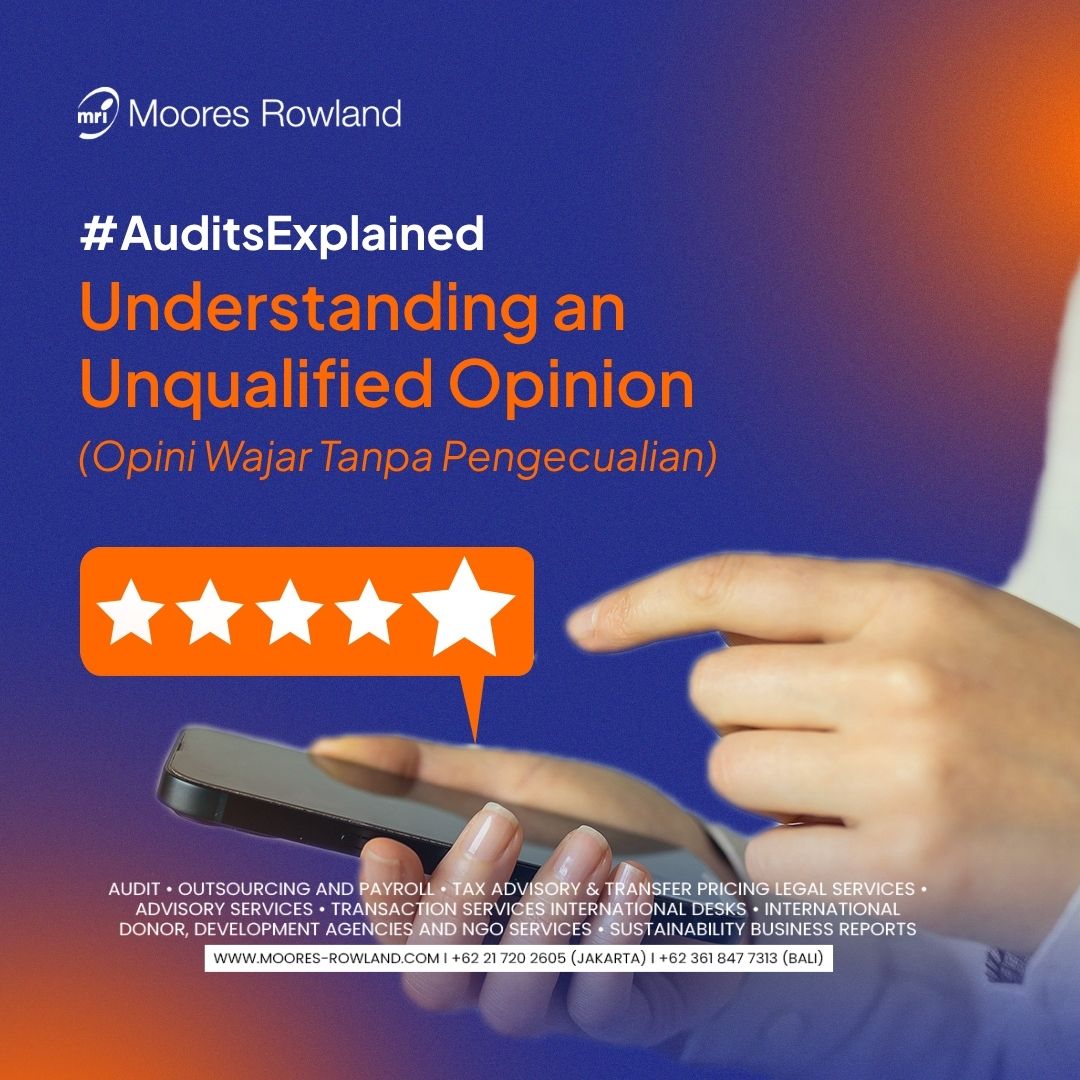#AuditsExplained: Understanding an Unqualified Opinion (Opini Wajar Tanpa Pengecualian)
July 2025
When it comes to financial statement audits, one of the most commonly mentioned — yet misunderstood — terms is the Unqualified Opinion, or in Indonesian, Opini Wajar Tanpa Pengecualian (WTP). Despite how it may sound, an unqualified opinion is actually a positive outcome. But what does it really mean? Why is it important for companies, investors, and regulators? Let’s break it down in simple terms.
What Is an Unqualified Opinion?
An Unqualified Opinion is a standard, positive outcome that reflects the auditor’s conclusion that the financial statements are fairly presented in accordance with the applicable framework. It means that the financial statements:
- Are free from material misstatement
- Comply with applicable financial reporting standards (e.g., IFRS or PSAK in Indonesia)
- Give a true and fair view of and present fairly, in all material respects, the company’s financial position, performance, and cash flows
In Bahasa Indonesia, this is referred to as Opini Wajar Tanpa Pengecualian (WTP).
What Makes an Auditor Give a WTP?
Auditors do not give a WTP lightly. After they conduct a rigorous, objective, and independent audit of a company’s financial statements as prepared by management, auditors offer their opinion (opini) based on whether the statements meet the applicable reporting framework(s). A company is more likely to receive a WTP when it:
- Maintains robust internal controls over financial reporting. Although internal controls are not directly part of the auditor’s opinion, robust controls support the preparation of reliable financial statements
- Provides complete and accurate documentation
- Applies consistent and appropriate accounting standards
- Cooperates transparently throughout the audit process
Additionally, the auditor must not find any material misstatements or conditions that would impair the fair presentation of the financial statements.
Why Is an Unqualified Opinion So Important?
An unqualified opinion (WTP) enhances an organization’s credibility. For Indonesian companies, particularly those that are publicly listed, regulated, or preparing for an IPO, it signals financial discipline and alignment with accounting standards. Here's why it matters:
- Builds Trust – Stakeholders such as investors, creditors, and regulators rely on audited financial statements. A WTP improves their confidence in the accuracy and reliability of the information presented.
- Supports Growth – Companies looking to expand, attract investors, or secure funding often benefit from financial statements that are fairly presented and free from material misstatement.
- Demonstrates Good Governance – A WTP does not guarantee the absence of issues, but it is often seen as a sign of transparency, accountability, and sound financial management.
In Indonesia, government institutions also use WTP as a benchmark in assessing financial corporate accountability and trust in public sector reporting.
Achieve Audit Excellence with Moores Rowland Indonesia
At Moores Rowland Indonesia we assist organizations across all sectors strengthen their financial reporting and prepare for audits with confidence. Our audit teams combine technical expertise and industry insight to support clean, compliant, and value-driven financial reporting.
Ready to enhance your audit preparedness and support your journey toward a potential WTP?
Explore our audit services to learn how we can assist your organization in meeting financial reporting standards.
Or contact us today to speak with one of our audit experts.


